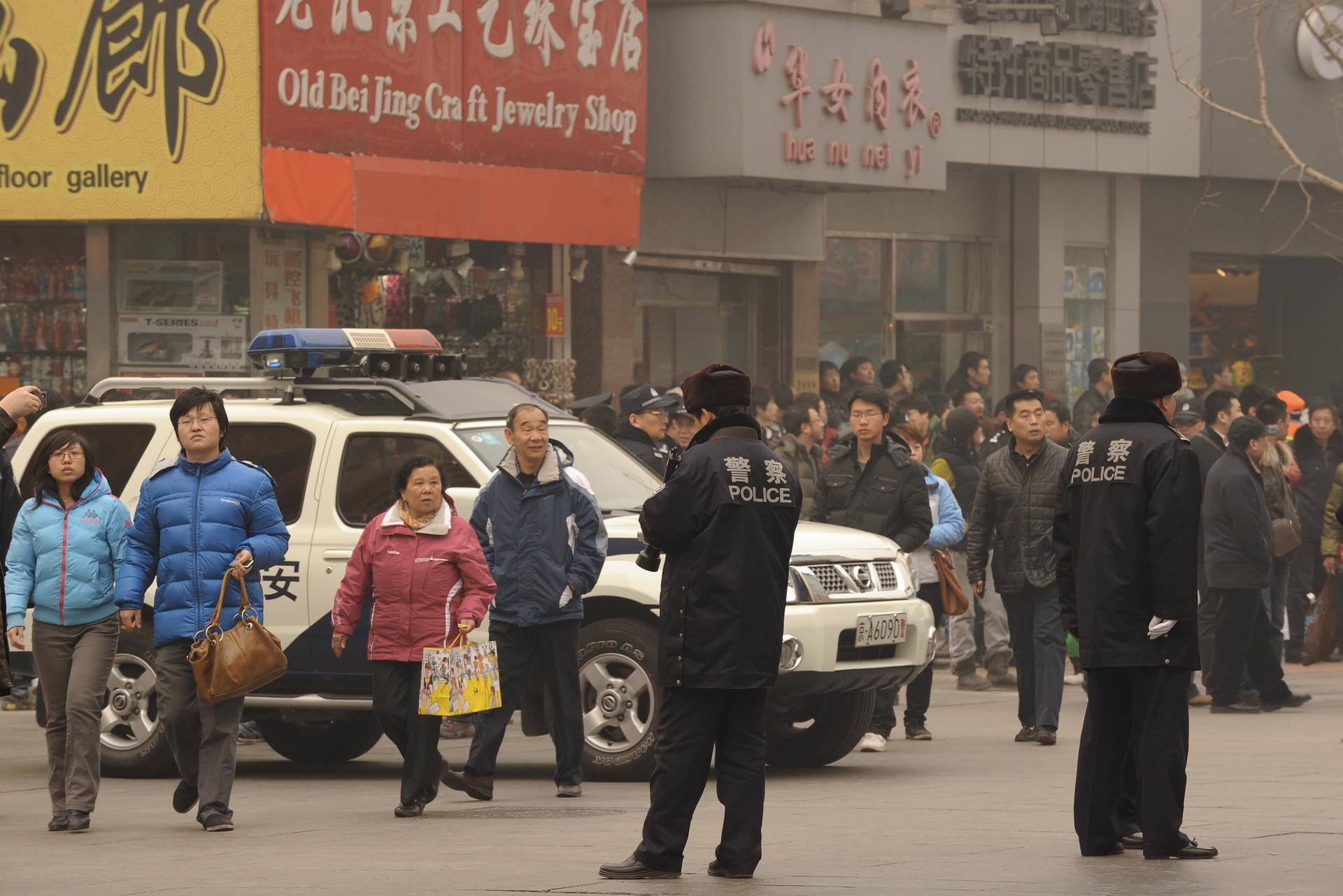China: Jasmine Revolution protests to be held every Sunday
Police keep watch along the Wanfujing shopping street in Beijing after protesters gathered on Feb. 20, 2011. Postings circulating on the Internet called on disgruntled Chinese to gather in public places in 13 major cities to mark the “Jasmine Revolution” spreading through the Middle East.
Eager to have their own Jasmine Revolution, Chinese political activists have called for gatherings in protest of the government every Sunday.
The call for weekly protests came via an anonymous statement posted on the U.S.-based Chinese language news site Boxun, which is blocked in China. The message was spread through Twitter, which is also blocked. The only Chinese who will get the message will therefore be those who use proxies to circumvent the government's fire walls.
"We invite every participant to stroll, watch or even just pretend to pass by. As long as you are present, the authoritarian government will be shaking with fear," said Wednesday's statement.
The call for demonstrators to gather silently at 2 p.m. in front of department stores and other public places in 18 cities across China comes days after the government successfully clamped down on a weekend attempt at a mass protest. Police overwhelmed protests in Beijing and Shanghai last Sunday and have boosted their intimidation campaign.
"According to the Hong Kong-based Information Center for Human Rights and Democracy, three people were detained for 'inciting subversion of state power' after they reposted calls for protests last weekend. The detentions could not be confirmed independently, but they follow roundups of scores of dissidents and rights lawyers. Some well-known lawyers who handle sensitive cases were placed under house arrest and some beaten badly, according to human rights activists," reported the New York Times.
China has also beefed up its online censorship and has blocked the word "jasmine" on social networking sites and in online chat rooms. The name Jasmine Revolution is inspired by the protests in Tunisia that set off the ongoing unrest across the Arab world.
Meanwhile, Bloomberg News columnist William Pesek asks if China has not seen the kind of large-scale protests that have recently shaken other nations because of its one-child policy.
"A common thread linking events in Egypt, Bahrain, Tunisia, Libya and elsewhere is big populations of disaffected youth. They’re angry about greed, corruption, the rich-poor divide and unaccountable leaders. Many Chinese harbor similar gripes, yet demographics works in the Communist Party’s favor," writes Pesek.
"Had China not instituted population control in 1979, there would be tens of millions more underemployed and aggrieved young men milling about in China’s cities. Just the type to foment revolution — a Tiananmen Square 2.0. Only, they were never born. Turns out, the policy is a boon for Chinese regime control."
Others argue that China's one-child policy, coupled with a preference for boy children, have created a severe gender imbalance that risks destabilizing the country in the future.
— Hanna Ingber Win
Follow GlobalPost on Twitter: @GlobalPost
We want to hear your feedback so we can keep improving our website, theworld.org. Please fill out this quick survey and let us know your thoughts (your answers will be anonymous). Thanks for your time!
